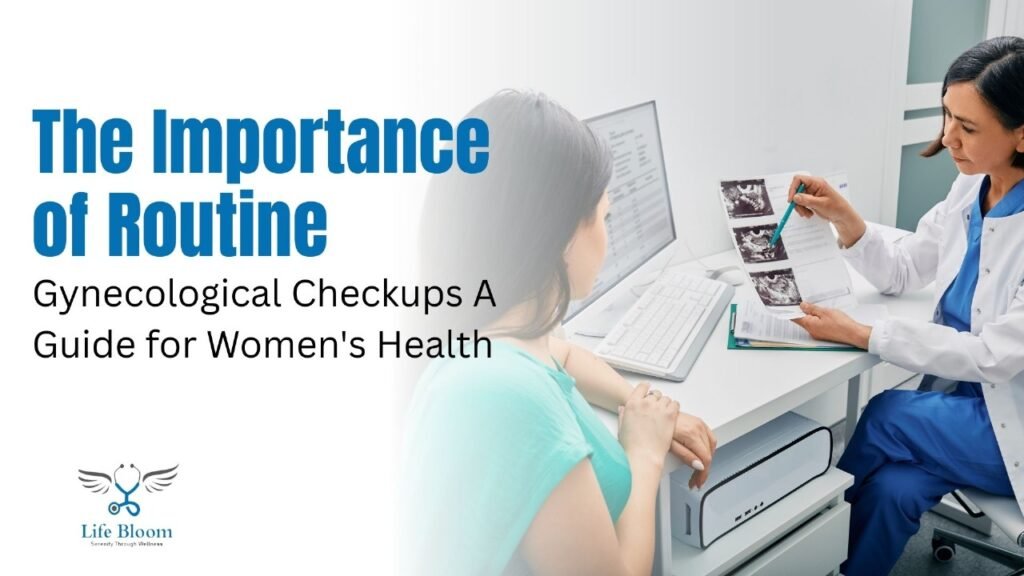Women’s health is a crucial aspect of overall well-being, and routine gynecological checkups play a vital role in ensuring optimal reproductive and general health. These checkups help in the early detection of potential health issues, provide necessary vaccinations, and offer guidance on maintaining a healthy lifestyle. Despite their significance, many women tend to delay or overlook these appointments. In this guide, we’ll explore why routine gynecological checkups are essential and what to expect during your visit.
Why Are Routine Gynecological Checkups Important?
-
Early Detection of Health Issues
Regular gynecological visits help in the early identification of conditions such as cervical cancer, ovarian cysts, fibroids, and sexually transmitted infections (STIs). Early diagnosis increases the chances of effective treatment and prevention of complications.
Screening for Cervical Cancer
Pap smears and HPV tests are critical in detecting abnormal cervical cells, which could lead to cervical cancer. The earlier such abnormalities are identified, the better the chances of successful treatment.
Breast Health Assessment
Routine checkups include breast examinations to detect any lumps, changes in breast tissue, or abnormalities that may indicate breast cancer. Your gynecologist may also guide you on performing self-breast exams at home.
Menstrual Health and Hormonal Balance
Irregular periods, heavy bleeding, or severe cramps can indicate underlying conditions such as polycystic ovary syndrome (PCOS), endometriosis, or thyroid disorders. A gynecological visit helps diagnose and manage these conditions effectively.
Sexual and Reproductive Health
Whether you’re planning a pregnancy, seeking contraceptive options, or dealing with concerns about sexual health, gynecologists provide valuable advice and medical support tailored to your needs.
Menopause Management
Women approaching menopause experience various hormonal changes that can lead to hot flashes, mood swings, and osteoporosis. Regular checkups ensure proper guidance on hormone replacement therapy (HRT) and other management options.
What to Expect During a Routine Gynecological Checkup
A routine gynecological visit typically includes the following:- Medical History Discussion: The doctor will ask about your menstrual cycle, sexual activity, past medical conditions, and any symptoms you may be experiencing.
- Physical Examination: This may include checking vital signs, weight, and general health assessment.
- Pelvic Exam: The doctor examines the reproductive organs to check for abnormalities.
- Pap Smear & HPV Test: These tests help detect early signs of cervical cancer.
- Breast Examination: Checking for any lumps or abnormalities.
- Contraceptive and Reproductive Health Discussion: Your gynecologist may suggest birth control options or discuss fertility concerns based on your needs.
When Should You Schedule a Gynecological Checkup?
- Women should start seeing a gynecologist from the age of 21 or earlier if they are sexually active or have health concerns.
- Annual checkups are recommended for general health maintenance.
- If you experience irregular periods, pain, unusual discharge, or any discomfort, seek medical advice immediately.
- Women in their 40s and beyond should schedule regular visits to manage menopausal changes and maintain reproductive health.
Final Thoughts
Routine gynecological checkups are essential for maintaining women’s health at every stage of life. Prioritizing these visits ensures early detection of potential health risks, promotes reproductive wellness, and empowers women to take charge of their well-being. If you haven’t scheduled your next gynecological checkup yet, now is the time to do with Life Bloom Healthcare
Visit Dr. Neha Mahajan Today- Basment, OPD-1, Dakshin Marg, DM-22, DLF Phase 2, Sector 25, Gurugram
Call Now- +91 70422 93891

